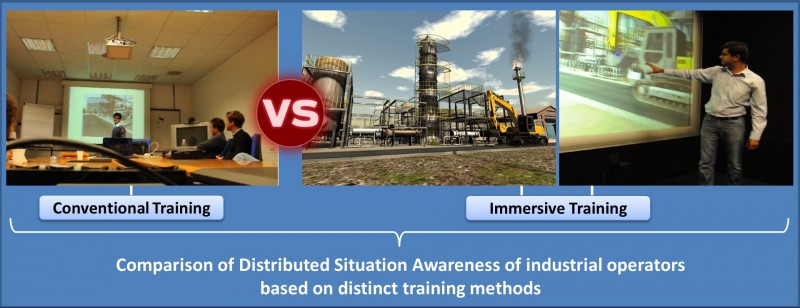Safety Science is one of the most prestigious journal in the world of Safety and Human Factors. PSE-lab is pleased to share that the finally accepted paper is available online now. The title of the paper is “Impact of training methods on Distributed Situation Awareness of industrial operatorsâ€. The main author (Dr. Nazir) has finalized his PhD under the supervision of Prof. Manca.
The Free version (as granted by Elsevier until January 30, 2015) of the paper is available here.

Abstract
Industrial operators have an important role to play in terms of reducing the probability of accidents by utilizing their awareness and understanding of the system and the situation during normal and abnormal operating conditions. Industrial operators are important barriers against accidents. Distributed Situation Awareness (DSA) has been shown to correlate with positive performance and goal achievement. The role of individual operators as barriers against accidents calls for a greater understanding of DSA in the process industry and industrial plants. Industrial operators must cope with uncertainties with regards to the information they must process in normal and abnormal situations, while working in geographically dispersed locations and with different teams. The significance of DSA during an abnormal situation increases manifold and influences the possible consequences of an accident scenario. Aim of this article is to consider the effect of two distinct training methods on DSA and safety-related performance of industrial operators during an accident scenario. The results show that participants trained with the help of 3D virtual environments (NÂ =Â 12) were able to maintain better DSA and performed effectively within a simulated scenario as compared to those (NÂ =Â 12) trained with a conventional training method.


